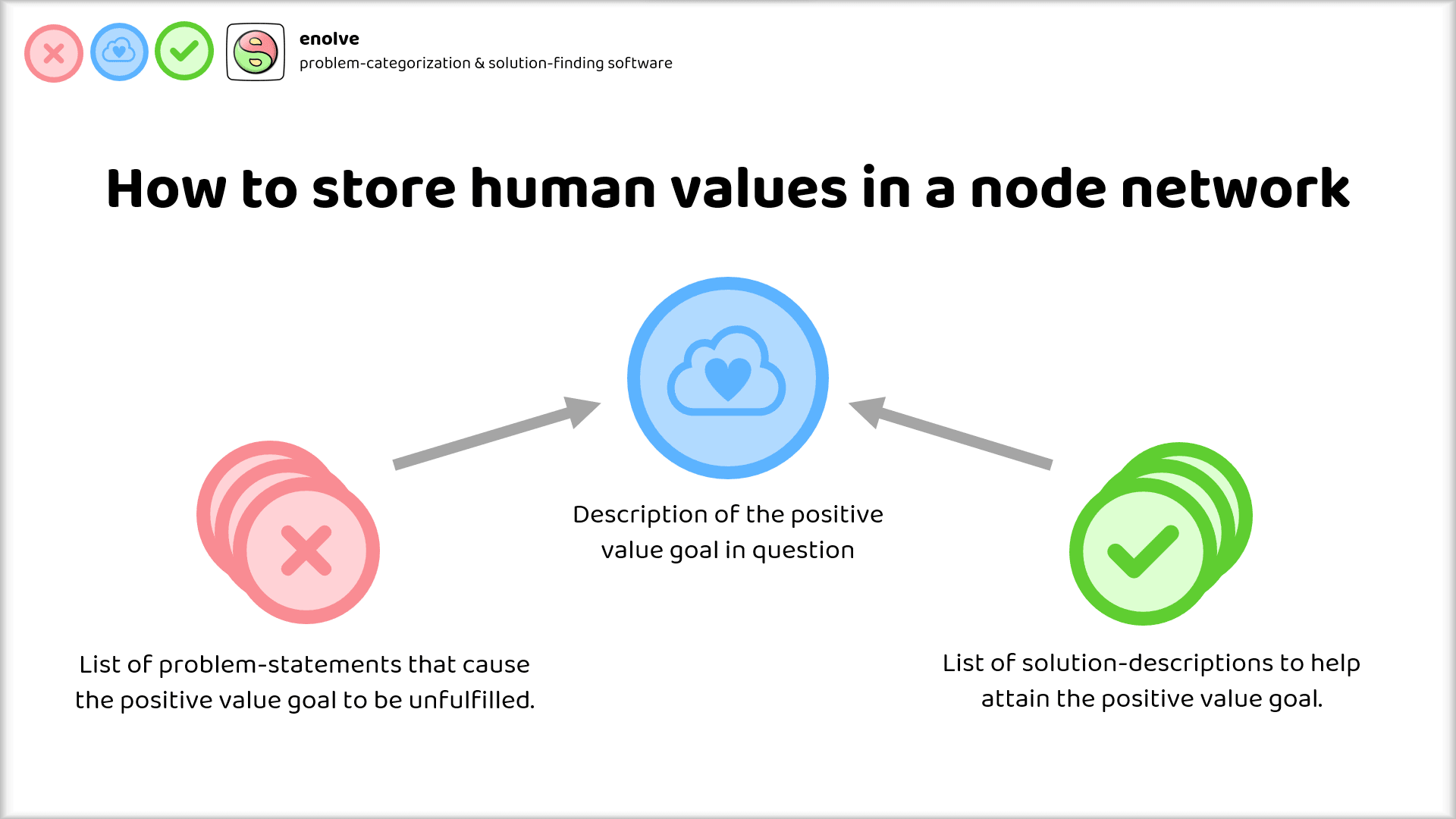One of the main obstacles to building safe and aligned AI is that we don't know how to store human values on a computer.
Why is that?
Human values are abstract feelings and intuitions that can be described with words.
For example:
- Freedom or Liberty
- Happiness or Welfare
- Justice
- Individual Sovereignty
- Truth
- Physical Health & Mental Health
- Prosperity & Wealth
We see that AI systems like GPT-3 or other NLP based systems use Word2Vec or other node networks / knowledge graphs to encode words and their meanings as complex relationships. This then allows software developers to parameterize language so that a computer can do Math with it, and transform complicated formulas into a human readable output. Here's a great video on how computers understand language using Word2Vec . Besides that, ConceptNet another great example of a linguistic knowledge graph.
So, what we have to do is find a knowledge graph that helps us encode human values, so that computers can better understand human values and learn to operate within those parameters, not outside of them.
My suggestion for how to do this is quite simple: Categorize each "positive value goal" according to the actionable, tangible methods and systems that help fulfill this positive value goal, and then contrast that with all the negative problems that exist in the world with respect to that positive value goal.
Using the language of the instrumental convergence thesis:
Instrumental goals are the tangible, actionable methods and systems (also called solutions) that help to fulfill terminal goals.
Problems on the other hand are descriptions of how terminal goals are violated or unfulfilled.
There can be many solutions associated to each positive value goal, as well as multiple problems.
Such a system lays the foundation for a node network or knowledge graph of our human ideals and what we consider "good".
Would it be a problem if AI was instrumentally convergent on doing the most good and solving the most problems? That's something I've put up for discussion here and I'd be curious to hear your opinion in the comments!

Interesting article! It reminds me of Monica Anderson's blog: https://experimental-epistemology.ai/
She embraces the mysticism and proposes that holistic, non-reductionist model free systems are undeniably effective.
> "The biggest problem, as I see it, is that you haven't come to a thorough understanding of what you mean"
That's another one, that Monica writes a lot about: Understanding.
What does is mean to understanding something? And what is the meaning of meaning?
Yes, they sounds like metaphysical, mystical ideas, and they might be fundamentally unsolvable (See: Hard problem of consciousness or explanatory gap).
But we already see that it must be possible for systems to exist in this universe, that are aligned within a group. Many groups of humans use their brains to figure out how to coexist peacefully.
So unless humans posses a mystical ingredient, it must be possible to recreate this sort of understanding in machines.
But we don't currently know how to teach this to this machines, in part because we lack a good dataset, and we don't understand it, ourselves.
Do you think that alignment is fundamentally an engineering problem, or is it one of the humanities and one of philosophy?